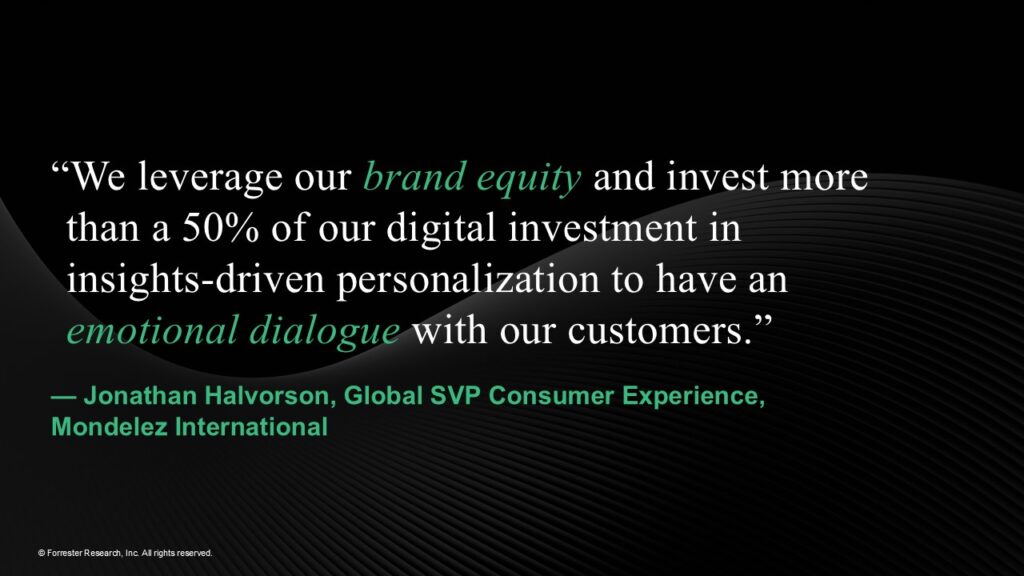Cannes Lions 2025: The AI Challenge For Brands And Agencies
The marketing and advertising industry is gathering for a couple of days at the International Festival of Creativity in Cannes, France, from June 16 to June 20.
No doubt that AI and generative AI (genAI) will be at the center of most discussions. Let’s look at how agencies and brands respectively embrace AI.
Agencies Are Facing An AI Cost Center Crisis
This morning in Cannes at a breakfast panel — featuring Mollie Rosen, president of member experience at 4A’s, and Kevin Babcock, head of creative partnerships at Google, and moderated by Katie Deighton, a reporter with The Wall Street Journal — my colleague Jay Pattisall shared the findings of brand-new research, conducted in partnership with 4A’s, covering The State Of Generative AI Inside US Marketing Agencies, 2025. He revealed that 75% of marketing agencies bear the costs, with generative AI capabilities funded directly by the agency without passing the costs to clients.
AI reshapes the ways that marketing agencies deliver value — increasing productivity, accelerating the speed of insights, assisting creative ideation, amplifying production velocity, and sharpening media and search activation. Marketing agencies such as Monks, Omnicom, Publicis Groupe, and WPP build AI into their offerings and leverage partnerships from Adobe, Amazon, Google and NVIDIA. But they are not being compensated for the value creation.
To find out more, read the latest blog post from my colleagues Keith Johnston (Forrester VP and group director) and Jay Pattisall (VP and principal analyst).
Embracing The Disruptive Power Of AI Is A Requirement, Not An Option
Despite the buzz on genAI and agentic AI, only 13% of global B2C marketing decision-makers cite advancing or introducing AI capabilities among their top priorities. Even so, genAI’s rapid acceleration will disrupt marketing functions, challenge agency relationships, and trigger difficulties for many marketers. Among those who include introducing or enhancing AI capabilities among their top priorities, 53% of North American respondents, 36% of European respondents, and 35% of Asia Pacific respondents expect it to be difficult. Marketers must meet these operational challenges head on while they strategically embrace AI’s potential to transform customer engagement.
One of the most mature genAI use cases is indeed to scale content production for personalization purposes. I recently spoke to the CMO at a global fast-moving consumer goods company who was puzzled by how quickly technology is evolving. But the challenge is not so much technology, per se, but to revisit your content supply chain, integrate genAI in existing processes and workflows, and change the way you work internally as well as with creative and technology partners.
AI Is A Tool To Help You Achieve Your Objectives And Solve Your Marketing Challenges
To understand CMOs’ broader priorities and challenges, my colleague Rusty Warner and I analyzed the responses of 1,042 B2C decision-makers from Forrester’s Marketing Survey, 2025. We found out that their top five marketing challenges, in priority order, are:
-
- Measuring the ROI of their marketing efforts.
- Managing budget constrains.
- Managing data quality.
- Personalizing communications, experiences, and interactions.
- Delivering a consistent customer experience across channels and touchpoints.
The key finding for me is that the right question is not “What can I use AI for?” but rather “How can AI help me achieve my marketing objectives?” and “How can AI as a tool help me solve my marketing challenges?”
The answer is not just considering AI as a way to reduce costs and improve productivity and time to market. It can also help brands personalize communications, experiences, and interactions.
Among the many interviews we conducted with agencies and brands, Jon Halvorson, global SVP of consumer experience at Mondelēz International, summed it up very well, “GenAI is a unique opportunity for us to rethink our entire content supply chain. We leverage our brand equity and invest more than 50% of our digital investment in insights-driven personalization to create an emotional dialogue with our customers.”

Clients can access our new report, 2025 B2C Marketing Challenges And Priorities, and also schedule time to chat about it.
